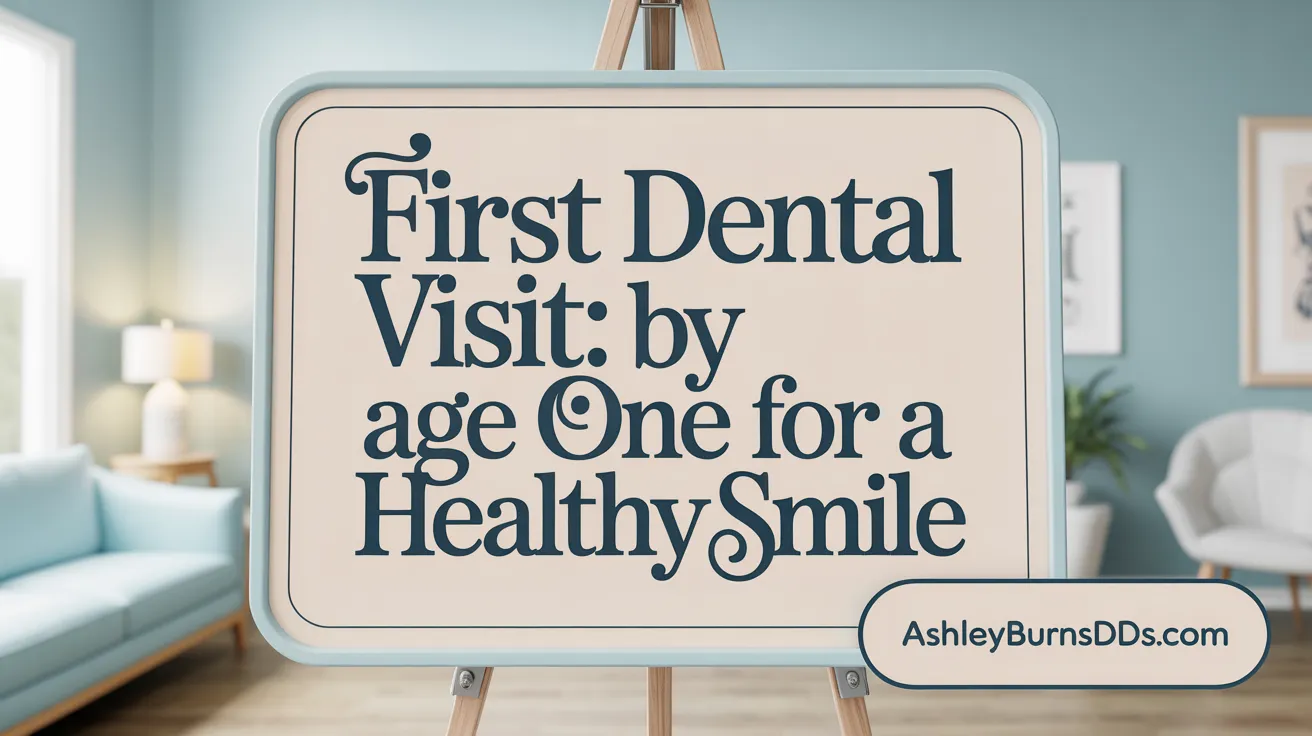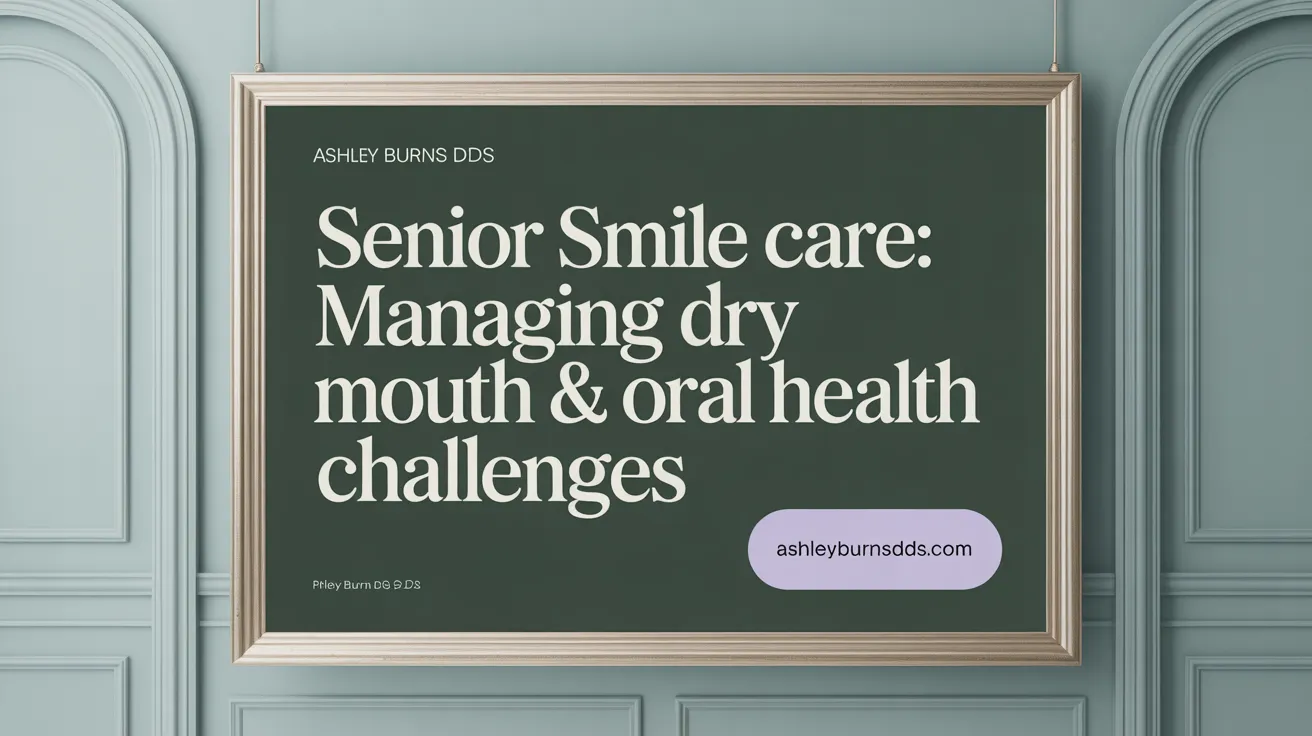Why Tailored Oral Health Care Matters
Oral health is a vital component of overall well-being at every stage of life. Different age groups face unique challenges and benefits in maintaining healthy teeth and gums. From infancy to senior years, adopting customized oral care routines and preventive measures helps establish lifelong dental health, prevents common problems, and supports general health. This article explores essential oral health care tips tailored for distinct age groups, highlighting the importance of early prevention, consistent habits, and age-appropriate interventions.
Oral Health Foundations for Infants and Young Children

How should oral care begin before teeth appear?
Oral care starts early by gently wiping a baby's gums with a soft, damp cloth. This practice helps prevent bacteria buildup before the first tooth emerges, setting a healthy foundation for oral hygiene. For more details, see Oral hygiene before first tooth eruption and Cleaning baby's gums.
When is the first dental visit recommended?
A child's first dental visit should occur by their first birthday or within six months after their first tooth appears. Early visits allow for identification of potential dental problems and help children become comfortable with dental care. Refer to First dental visit by first birthday and First Dental Visit Timing.
What practices help prevent early childhood caries?
Preventing early childhood caries involves avoiding sugary liquids in bottles at bedtime and encouraging the use of a cup by age one to reduce prolonged sugar exposure. Applying fluoride varnish and using dental sealants are effective measures that protect teeth against decay. See Preventing baby bottle tooth decay and Fluoride varnish benefits.
How should brushing and flossing be introduced to young children?
Brushing should be introduced as soon as the first tooth appears, using a soft-bristled toothbrush with a small smear of fluoride toothpaste. Flossing typically begins when two teeth touch, usually around age two, with parental supervision continuing until about age six to ensure proper technique and safety. Additional information is available at Introducing flossing in children and Brushing and flossing for children and teenagers.
How does diet impact children's oral health?
A balanced diet rich in vegetables, fruits, and calcium is essential for developing strong teeth and healthy gums. Limiting sugary snacks and drinks helps reduce the risk of cavities and supports overall oral health in children. Learn more at Balanced diet for oral health and Healthy, well-balanced diet for dental health.
Oral Health Guidance for School-Age Children and Adolescents
What oral hygiene practices are recommended for children aged 4-12?
Children should brush their teeth twice daily using fluoride toothpaste and floss once their teeth begin to touch. Supervision is important until they develop good brushing and flossing skills, usually around age 6 to 8, to ensure effective plaque removal and cavity prevention. See also brushing and flossing for children and teenagers.
How do dental sealants and mouthguards benefit children and teens?
Dental sealants act as a protective barrier on the chewing surfaces of back teeth, preventing about 80% of cavities by sealing out food and bacteria. Dental sealants effectiveness and using mouthguards in sports are essential to protect children’s teeth during activities.
Why is monitoring orthodontic needs and wisdom teeth important during adolescence?
Regular dental check-ups enable dentists to track orthodontic treatment progress, correct misaligned teeth, and observe the growth of wisdom teeth. Monitoring wisdom teeth and early orthodontic visits help avoid future complications like crowding or infection.
What lifestyle factors should teens be aware of for oral health?
Teens should avoid tobacco products, limit sugary drinks, and be careful with oral piercings, as these can harm oral tissues and increase disease risk. Those with braces need to maintain meticulous brushing and flossing routines to prevent decay and gum problems. See teens and oral health education and oral hygiene for teenagers.
How often should school-age children and teens visit the dentist?
Routine dental visits every six months are recommended for professional cleanings, preventive treatments, and early detection of dental issues to support lifelong oral health. For more information, see regular dental check-ups for teens and children's dental check-ups.
Maintaining Optimal Oral Health in Adults
What daily practices support adult oral health?
Adults should commit to brushing their teeth twice daily using fluoride toothpaste and flossing daily to effectively remove plaque and prevent decay. Utilizing electric toothbrushes can enhance cleaning efficiency, especially in hard-to-reach areas.
How do chronic diseases affect oral health in adults?
Chronic conditions such as diabetes, heart disease, and arthritis increase the vulnerability to gum disease and tooth loss. These illnesses may complicate oral hygiene routines and heighten inflammation, necessitating diligent dental care.
Why are preventive dental visits important for adults?
Routine dental check-ups enable early identification of cavities, gum diseases, and oral cancers. Professional cleanings and screenings help maintain oral health and prevent complications.
What lifestyle factors influence adult oral health risk?
Avoiding tobacco and limiting alcohol intake substantially reduce the chances of developing gum disease and oral cancers. Additionally, HPV vaccination is recommended to lower the risk of certain oral cancers.
What are common adult dental issues and treatment options?
Common concerns include cavities, gum disease, tooth sensitivity, and bruxism (teeth grinding). Treatment options range from fillings and crowns to night guards and cosmetic solutions such as teeth whitening, all aimed at preserving function and aesthetics. For more detail on restorative dental treatments and cosmetic dental care, see associated resources.
Role of diet and lifestyle choices
A balanced diet rich in vegetables and low in sugary snacks supports strong teeth and healthy gums. Hydration and abstaining from tobacco further protect against oral diseases and improve overall health.
Special Considerations for Older Adults' Oral Health

What oral health challenges do older adults face?
Older adults commonly face several oral health issues including gum disease prevention and management, cavities in older adults, and managing dry mouth in seniors. Dry mouth often results from medications that reduce saliva flow, which is crucial for protecting teeth and gums. Additionally, this age group has an increased risk for oral cancer screenings for seniors, making vigilance essential.
How can dry mouth be managed in seniors?
Managing dry mouth involves various strategies such as increasing water intake throughout the day, using saliva substitutes available over the counter, and chewing sugarless gum to stimulate saliva production. Avoiding tobacco and alcohol is also beneficial. Seniors should consult healthcare providers to explore potential adjustments in medications or additional treatments to ease symptoms. See managing dry mouth in older adults for more information.
Why is regular dental care crucial for older adults?
Routine dental visits are vital for early detection of problems like oral cancer screenings for seniors and ongoing dental issues. Regular appointments help maintain the health of natural teeth, dentures, and implants. These visits allow professional cleaning, timely treatment of infections or decay, and personalized advice for oral care. Learn more about caregiver techniques for oral hygiene and dental care tips for seniors.
What special care do dentures and implants require?
Dentures need thorough daily cleaning and should be removed at night to prevent infections and gum irritation. Implants require dedicated oral hygiene, including careful brushing and flossing around the implant site, to maintain healthy gums and prevent peri-implant diseases. For detailed guidance, see proper denture care and dental care for seniors.
How do diet and hydration impact seniors' oral health?
A balanced diet enriched with calcium and vitamin D supports strong teeth and bone health. Proper hydration combats dry mouth, helping maintain a moist oral environment critical for comfort and preventing decay. Avoiding sugary and acidic foods further protects dental health in older adults. For more tips, visit healthy diet for oral health and hydration and oral hygiene.
Preventive Dental Care Across the Lifespan

Why are early dental visits important?
Early dental visits, ideally by a child's first dental visit by first birthday, help create positive dental experiences and identify any oral health issues at their earliest stages. These visits lay the foundation for lifelong oral care habits, encouraging parents and children to adopt good practices early on to prevent tooth decay and other problems.
How do regular cleanings and check-ups contribute to oral health?
Regular dental cleanings and check-ups remove plaque buildup that daily brushing cannot fully address. They also allow dentists to detect cavities, gum disease, or misalignments early, enabling timely treatment. This proactive approach reduces the risk of complications and costly procedures later in life.
What preventive treatments protect teeth from decay?
Fluoride varnish applications strengthen enamel by enhancing its resistance to acid attacks from plaque bacteria. Dental sealants effectiveness provide a protective layer on the chewing surfaces of molars, which are more prone to cavities. Together, these treatments significantly lower the risk of decay in both children and adults.
How does controlling plaque benefit oral health?
Plaque is a sticky film of bacteria that can cause cavities and gum disease. Daily brushing with fluoride toothpaste and flossing remove plaque from tooth surfaces and between teeth. This reduces bacterial buildup, prevents infections, and helps maintain healthy gums and teeth, thereby preserving oral function and appearance.
What is the link between oral and systemic health?
Poor oral health is linked to systemic conditions such as cardiovascular disease, diabetes complications, respiratory infections, and adverse pregnancy outcomes. The mouth can serve as a reservoir for harmful bacteria that may enter the bloodstream, highlighting the importance of maintaining good oral hygiene to support overall health. Learn more about the oral-systemic health link and how oral health impacts overall wellbeing.
Benefits of customized preventive strategies
Preventive dental care tailored to each life stage addresses unique needs—from gentle gum cleaning in infants to managing dry mouth in seniors. Regular dental visits combined with personalized hygiene practices and protective treatments help maintain oral health effectively throughout life. For more detailed tips on oral care at every age, see Oral hygiene before first tooth eruption.
Holistic Tips for Lifelong Oral Wellness

How should oral hygiene be adapted as people age?
Oral hygiene routines must evolve to match changes in dexterity and oral health conditions. For children, supervision and gentle techniques with small, soft-bristled toothbrushes are key (oral hygiene for infants, soft toothbrush for infants). Adults benefit from standard twice-daily brushing and flossing (daily oral hygiene practices), while seniors often require electric toothbrushes, floss holders, and mild cleansers to accommodate sensitivity and reduced hand strength (oral health tips for older adults, caregiver techniques for oral hygiene).
What dietary habits support oral health throughout life?
Maintaining strong teeth and gums depends heavily on a balanced diet rich in fruits, vegetables, calcium, phosphorus, and low in sugary or acidic foods (balanced diet for oral health, good oral hygiene, dental care for seniors). Adequate hydration supports saliva production, crucial for protecting against decay (hydration and oral hygiene). Limiting sugary snacks, sodas, and acidic drinks helps prevent enamel erosion and cavities (limiting sugary foods, preventing cavities in children.
How can lifestyle choices impact oral health?
Avoiding tobacco and limiting alcohol intake significantly reduce risks of oral cancer and gum disease (avoiding tobacco for oral health, alcohol moderation and oral health). Managing stress and reducing consumption of sugary and acidic foods also protect against cavities and enamel damage, promoting lifelong oral health (daily oral care tips).
What role do caregivers play in oral health for dependent individuals?
Caregivers are vital for assisting with oral hygiene in seniors or those with cognitive or physical impairments. They should use gentle techniques, patiently encourage regular dental care, and help manage oral health routines, especially in long-term care settings (caregiver techniques for oral hygiene, oral health for bedridden patients.
How do community programs and policies influence oral health?
Community programs providing affordable dental care and education help reduce disparities (community dental health programs, oral health resources). Public initiatives like fluoridated water contribute to cavity prevention across populations, supporting overall oral wellness at a societal level (fluoride varnish benefits, importance of fluoridated tap water.
Promoting Healthy Smiles for Life
Oral health care tailored to the needs of different age groups is essential for maintaining strong teeth, healthy gums, and overall wellness. Early initiation of dental routines, preventive measures like fluoride and sealants, diligent hygiene supervision for children, and lifestyle considerations for adults and seniors create a continuum of care. Understanding the unique challenges at each life stage—from infancy through older adulthood—enables individuals and caregivers to implement effective strategies that reduce risks, enhance comfort, and preserve function. Regular dental visits combined with good oral hygiene, balanced nutrition, and attention to systemic health connections ensure that healthy smiles contribute to a better quality of life throughout all phases of life.
